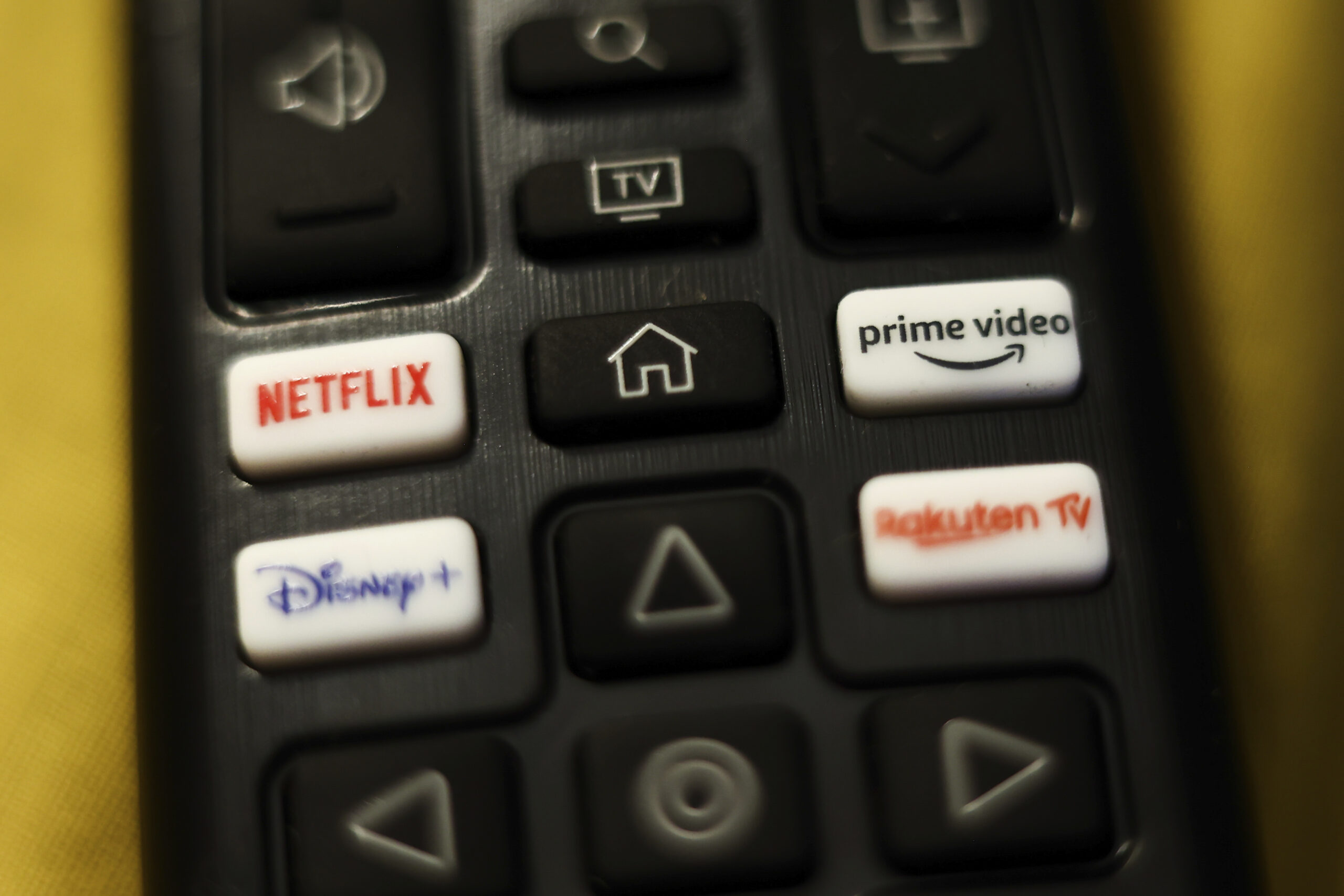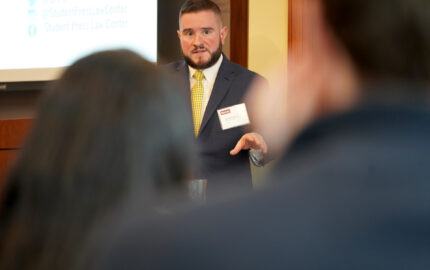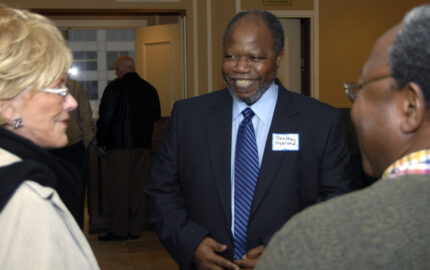Massachusetts lawmakers are considering legislation that advocates say would make it the first state in the nation to levy fees on streaming companies like Netflix in order to help fund community media.
The “Act to Modernize Funding For Community Media Programming” is proposing a five percent fee on digital streaming providers, based on a company’s gross annual revenue in the state. A portion of the fee would be distributed to municipalities for the support of their community media centers — colloquially known as public access television.
The proposed legislation, which is in the early stages of committee review in the state legislature, is aimed at supplementing decreasing cable revenue fees, which make up a large portion of community media budgets.
Under the federal Cable Communications Policy Act of 1984, cable providers currently pay a percentage (up to five percent of gross annual revenue) of their franchise license agreements with municipalities in exchange for using local infrastructure to reach customers. For nearly 40 years, these fees have represented a major source of funding for community access stations across the country that produce non-commercial public, educational, and governmental (PEG) programming. (Disclosure: The author serves as a volunteer member on the board of the non-profit Watertown [Mass.] Cable Access Corp.)
But as consumers increasingly quit cable for streaming entertainment services, a major source of funding for community media is in jeopardy. At the same time, these stations are playing an increasingly vital role in a shrinking local news ecosystem, according to Jonathan Grabowski, the executive director of Marshfield Community Television and a clerk on the board of Mass Access, a nonprofit that advocates for community media.
“In an age of remote participation and a lack of local media coverage, community media centers in Massachusetts have found themselves in the untenable situation of increased demand for services with less funding,” Grabowski testified at a July 13 hearing on the bill.
Seventy percent of Mass Access’ member organizations reported a sharp increase in coverage of local meetings since 2020, to support hybrid open-public-meeting requirements during the pandemic, Grabowski testified, while nearly 60 percent reported a decrease in funding during the same time period. Citing figures from the Massachusetts Department of Telecommunications and Cable, he added that cable subscriptions have decreased by more than 30 percent in the state from their apex a decade ago, with the largest-ever decrease in subscribers — 10 percent — occurring between 2021 and 2022. At that pace, Grabowski warned, the $63.3 million in cable franchise fees that go to supporting Massachusetts’ community media centers will decrease by more than half by 2030.
The proposed legislation (H.74 and S.34), which has more than 70 cosponsors to date, would direct the state to collect fees from streaming companies twice per year into the general fund. Twenty percent would be retained for administrative costs, and the remaining 80 percent would be disbursed to municipalities, based on population, to be evenly split between the municipality and its community media station for “expenditures related to hybrid municipal meetings, data infrastructure improvements, school technology programs and more,” according to Mass Access.
At least a dozen states currently levy some kind of digital tax on streaming services, but Massachusetts would be the first state to earmark a portion of the fees specifically to support community media, according to David Gauthier, the president of Mass Access and the executive director of Winchester Community Access & Media. Massachusetts is leading the legislative push, according to Gauthier, because it is home to more than 200 — or 13 percent — of all the community media centers in the nation. According to Mass Access, Massachusetts, with a population of around 7 million people, has more stations than California and Texas, the only other two states to have more than 100 community media centers.
Sponsors of the bill estimate it could generate about $65 million annually, which would replace, not add to, the projected decline in cable fees, according to Gauthier. Netflix and other streaming services did not return a request for comment. But several people representing the interests of cable, satellite, and streaming service providers testified at the legislative hearing that any additional fees on streamers would translate to a new tax on consumers at a time when many are eschewing cable for streaming in an effort to save money.
Tim Wilkerson, president of the New England Connectivity and Telecommunications Association (NECTA), a nonprofit trade association that represents several internet, broadband, cable, television, and content providers, said Massachusetts would go from being “the envy of most states” for having “the right regulatory environment for industry to invest, innovate, and partner with state government,” to damaging that reputation were it to levy fees on streaming companies.
During testimony before the Joint Committee on Advanced Internet Technology, the Internet, and Cyber Security, which included the streaming bill and other initiatives, Wilkerson urged the committee not to change the current regulatory environment. “Today, there are several well-intended bills before you that would reverse that proven policy of predictability by proposing regulatory expansion that is unnecessary, would be costly for consumers and industry, and in some instances, likely preempted by federal law," he said.
Chris Gilrein, the executive director of Massachusetts and the Northeast for TechNet, a national network of technology CEOs and senior executives that “promotes the growth of the innovation economy,” also claimed the proposed legislation would mean higher fees for consumers.
“Beyond being an ill-timed burden on your constituents, this new tax would be duplicative and administratively cumbersome and sending a negative message to innovators and early adopters,” Gilrein said.
Gauthier of Mass Access, in an interview before the hearing, argued there is nothing in the proposed legislation that would require companies to pass the fees onto consumers.
“We can either throw everything back on the residents, or we can ask these multi-billion-dollar corporations to do their part,” Gauthier said, adding he thinks the term “cord cutting” is a misnomer.
“The streaming services are using the same infrastructure [as the cable companies]. The cord remains, regardless of what data runs through it,” Gauthier said. “People still have a cord coming into their house. That cable is still running over public lands, and to me, it’s the same form of transmission.”
Julie Thompson, chief communications officer for business and government affairs at Plymouth Area Community Access Television, testified that despite the declining revenue picture, her station has increased its coverage as a result of more demand for its content. The station has covered more than 966 board and committee meetings and more than 900 informational stories, profiles pieces, sporting events, concerts, parades, and community events over the last 18 months, Thompson testified during the hearing.
“With the demise of local newspapers and the questionable fact-checking of many social media sites, providing a local, trusted source for news and information is our continued mission and goal,” Thompson said.
“Everyone wants transparency in government,” she added. “Transparency costs money to provide.”
NECTA president Tim Wilkerson did not testify on H.74 and S.34 specifically, but on broadband issues at large.


